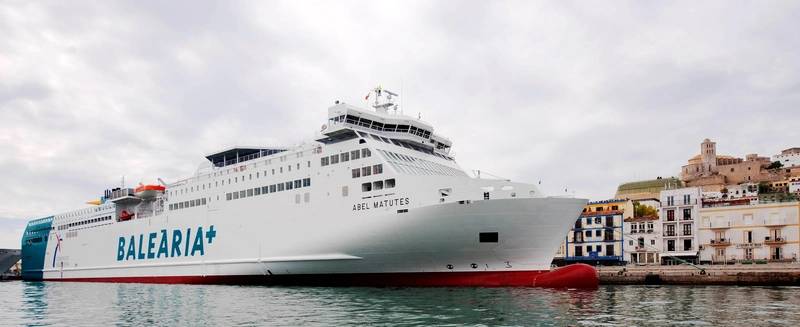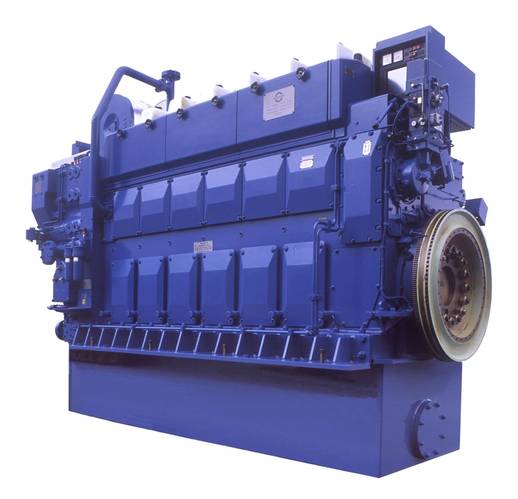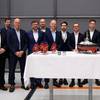Spain's First Pure-Gas Marine Engine
Rolls-Royce has signed a collaboration agreement with Spanish energy company Gas Natural Fenosa to develop and install a pure-gas Bergen engine aboard the Baleària-operated ferry Abel Matutes.
According to Rolls-Royce , the contract gives the company its first reference for a pure-gas engine installation on a European-flagged ferry operating outside of Norwegian waters.
The 29,670 metric ton ROPAX ferry, delivered in 2010 from the Hijos de J Barreras shipyard in Vigo, Spain, will use an LNG-fuelled Rolls-Royce Bergen C26:33 L6 AG auxiliary engine to generate 1,560kWe of clean power, reducing emissions during port stays in Barcelona and Palma de Mallorca.
Adolfo Utor, Baleària, Group President said, “Besides reducing CO2 emissions by 40%, it also enables us to reduce fuel costs. Abel Matutes may well find herself deployed on a route in an Emissions Control Area (ECA) sometime in the future.”
John Knudsen, Rolls-Royce, President – Commercial Marine, said, “Spain has the potential to be a significant player in the LNG market. The agreement with Gas Natural Fenosa is a giant step forward in emissions reduction in advance of the entry into force of future emissions legislation.”
Baleària and Rolls-Royce aim to carry out pre-installation work at the beginning of 2015, prior to the vessel’s scheduled drydocking later in the year. The new engine will be fully integrated into the electricity plant on the vessel, enabling operation with any of the on-board auxiliaries. Testing and implementation work is expected to take place towards the end of next year.
When Abel Matutes is in port, the gas engine will be connected to the distribution infrastructure ashore or the LNG tank located on-board. The ferry will also consume natural gas during approach and departure maneuvers to generate electricity, replacing the heavy fuel oil previously used for this purpose.
According to the engine manufacturer, application of Rolls-Royce Bergen gas engine technology will lead to an emissions reduction and an annual saving of almost 4,000 metric tons of CO2, over 60 metric tons of NOx and six metric tons of SOx.

















